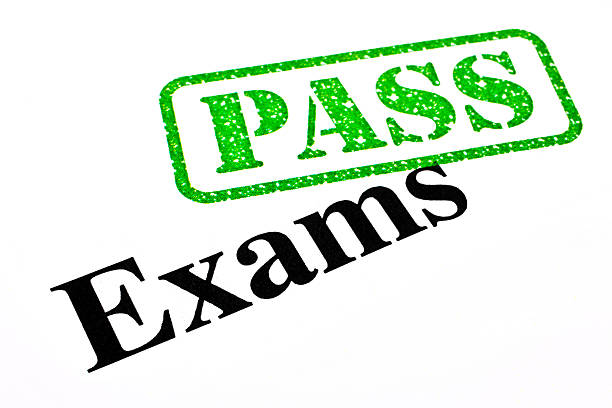The excitement and tensions around GCSE results day grow as the academic year advances. This milestone may be both exhilarating and anxiety-inducing for students, as it is the culmination of years of hard work, late-night study sessions, and innumerable tests.
A good plan is critical to provide a seamless and well-prepared experience on GCSE results day in 2024.
This post will review essential suggestions and steps on How to Be Fully Prepared for GCSE Results Day in 2024.
Join us as we delve into the essential steps to adequately prepare for the big day, from organizing your documentation to managing expectations.
Table of contents
What exactly are GCSEs?
GCSEs (General Certificate of Secondary Education) are a collection of standardized academic credentials usually taken by students in the United Kingdom during their secondary education, typically lasting 14 to 16 years.
These qualifications are an essential element of the UK education system, and businesses and universities accept them as an essential assessment of a student’s academic achievements.
System of Grading and Interpretations:
GCSE grades are assigned on a scale of 9 to 1, with 9 being the highest and 1 being the lowest. Grades are used to represent a student’s degree of achievement in a particular topic. Here’s a basic breakdown of the grades:
- 9, 8, 7 (A): These are solid grades that indicate a high degree of understanding and proficiency in the topic.
- 6, 5 (B): These are good scores that show a thorough mastery of the subject.
- 4, 3 (C): A grade of 4 is considered a pass, indicating a fundamental understanding of the subject.
- 2, 1 (D, E, F, G): These grades reflect less achievement, with the lowest pass being grade 1.
In some circumstances, the grades may also include a “+/-” distinction, such as 9+, 9-, and so on, to provide a more fine-grained grading.
Read Also: 15 Best Colleges to Get the Best Biochemical Engineering Degree in 2024
Important Topics and Their Importance:
GCSEs often cover the following topics:
English Language and Literature: Communication skills are essential, and these topics assist students in developing good reading, writing, and critical thinking skills.
Mathematics is a fundamental skill that may be used in many facets of life, from simple activities to sophisticated occupations.
Science (Biology, Chemistry, Physics): Science topics teach students fundamental scientific principles and aid in their comprehension of the natural world.
History and geography provide context and understanding of the world’s history and present and the relationships between people and the environment.
Learning a modern foreign language is beneficial for communication and cultural knowledge.
ICT (Information and Communication Technology): Critical computer skills are necessary in today’s digital age.
The significance of GCSEs stems from the fact that they are frequently required for further education, such as A-levels (Advanced Level qualifications) or vocational programs, and that universities and employers consider them when assessing a student’s qualifications and talents. They lay the groundwork for future academic and professional efforts.
When are the GCSE results?
The GCSE results day in 2024 will be on August 24th. However, schools will get grades on Wednesday, August 23rd. Usually, the results are updated around 8:00 a.m.
Although some schools provide online facilities for checking results, we urge that you visit the school. Learn more about when grades are released on results day and whether you may access them online.
You’ll be surrounded by teachers and classmates who will provide you with the emotional support you require.
Furthermore, if you are dissatisfied with your grades, there will be people to talk to and decide what to do next.
If you intend to appeal your GCSE grades, you must first speak with your school officials, and the sooner you do so, the better. The deadline for seeking a remark is September 29th.
How Can You Be Completely Prepared for GCSE Results Day in 2024?
To prepare for GCSE results day, follow the steps below:
Keep Up to Date: Understand the Date and Procedure
It starts with knowing when the GCSE Results Day for 2024 will be published. Make a note of this date in your calendar and set a reminder. Learn how to access your results online, through your school, or by mail.
Maintain Positive Expectations
It is critical to approach GCSE Results Day with a good attitude. Recognize that the outcomes are only one aspect of your educational journey. There are numerous roads to achievement, and these outcomes serve as stepping stones toward your objectives.
Consider Your Options in Advance
Take some time before Results Day to investigate the various educational and professional options accessible to you. Investigate possible colleges, vocational programs, or apprenticeships. After obtaining your results, clearly understanding your alternatives will allow you to make informed decisions.
Read Also: Top 15 Easiest GCSE Subjects In 2024
Seek Advice: Consult with Teachers and Advisors.
Please contact your professors or school advisors if you have any questions or concerns about your findings or plans. They can provide valuable insights and guide you through the next steps.
Keep Calm and Plan for All Possibilities
While you may have great expectations for your accomplishments, you must be prepared for various outcomes. Having a plan for all possibilities will lessen tension and anxiety, whether your results are better or worse.
All GCSE students share the experience of Results Day. Discuss your results and intentions with your friends and classmates. You are not alone on this journey; helping each other can make the journey more bearable.
Analyze Your Results for Reflection and Learning
Take the time to analyze your results once you obtain them carefully. Determine where you excelled and where you may improve. This self-reflection will assist you in setting objectives for your future study.
What to Bring to the Results Ceremony:
- identity: You must bring some type of identity, such as a photo ID (passport, driver’s license, or school ID), to view your results.
- Exam Details: Record your exams (exam board, subjects, etc.). This can aid in the resolution of any differences that may occur.
- Contact Information: Keep the contact information for your school or college on hand in case you need to contact them.
- Pen and Paper: Bring a pen and a small notepad with you. You may need to jot down essential details or take notes.
- Mobile Phone: Carry your phone to contact someone if necessary and photograph any official documents or notifications.
Documents Required:
The main reason you’re there is for the results slip. This section displays your exam grades.
Certificates (if applicable): If you received any certificates for achievements throughout your studies, keep them on hand if required.
If you’re applying to university through UCAS, have your UCAS ID and any related correspondence.
Read Also: How To Find The Best GCSE Computer Science Tutor In 2024
System of Emotional Support:
Family: Having family members present can provide emotional support, mainly if the results cause a celebration.
Friends: If your friends are also getting results, they can be a terrific source of encouragement.
Teachers or school personnel might help and advise on the next steps, such as university applications or job alternatives.
Counselor or Support Services: If you’re worried, your school or institution may provide counseling or support services.
Wear something comfortable:
Wear loose-fitting clothing and shoes. Being comfortable is essential because you may have to wait in lines or move around. Dress for the weather, especially if there will be any waiting outside.
Remember that results day can be an emotional experience, so it’s critical to take care of yourself whether the news is good or bad. If the results are unexpected, don’t hesitate to ask for help and advice on the next steps.
What Happens If My GCSEs Fail?
Failing your GCSEs (General Certificate of Secondary Education) can be disheartening, but remember that it is not the end of the journey. If your GCSE results are not as expected, you have numerous alternatives and steps to take:
- Retakes: Many schools and colleges allow students to retake GCSE exams. This allows you to enhance your marks in subjects where you did not obtain the intended outcome. Inquire with your school or college regarding retake policies.
- Alternative Qualifications: If traditional GCSEs did not work out for you, there are other options, such as vocational courses, BTECs, or other equivalent qualifications, that may be more aligned with your abilities and interests. These credentials can still lead to further education or employment.
- Further study: Depending on your ambitions, you can continue your study with your current qualifications. Some colleges or sixth forms may have admittance requirements that you can still meet with your existing grades.
- Apprenticeships: Apprenticeships are an excellent opportunity to obtain hands-on experience and practical skills while working in various industries. Some apprenticeships contain entry requirements that can be satisfied with other qualifications.
- Adult Education: If you are determined to upgrade your qualifications, adult education programs and courses are available to assist you in earning the essential skills and qualifications later in life.
- Career Options: Not all professions require specific GCSE grades. Some positions place a greater emphasis on experience, abilities, and personal characteristics. Investigating job paths that may be more flexible in terms of academic qualifications is worthwhile.
- Seek Advice: Consult with your professors, career counselors, and family members. They can offer crucial advice and support in determining the appropriate next steps.
Read Also: 10 Best Costume Design Colleges 2024
FAQs about the 2024 GCSE Results Day
GCSE Results Day in 2024 will be held in August. The actual date may vary, so verify with your school or test board for the most up-to-date information.
You can normally get your GCSE results online through the official test board’s website, or you can get them from your school in person or by mail.
Don’t get too worked up if you’re dissatisfied with your outcomes. You can talk to your teachers about your possibilities, look into re-marking or appeals, or look into new educational courses.
GCSE retake programs are available at many schools and universities. Consult with your teachers or counselors to choose the best course of action.
Conclusion
Careful planning and organization are required to be fully prepared for GCSE Results Day in 2024. Students can reduce stress and ensure they have everything they need on the day by following the procedures indicated in this article.
It is critical to obtain all relevant documents, such as identity and exam registration information, ahead of time. Establishing a support network of family and friends who can offer emotional support is also critical.
Reflecting on accomplishments and setting reasonable goals can help manage disappointment or worry. Finally, remember that exam scores do not define one’s worth or future success; there are always other options. So, be ready, but remember to stay happy and enjoy whatever events occur.






